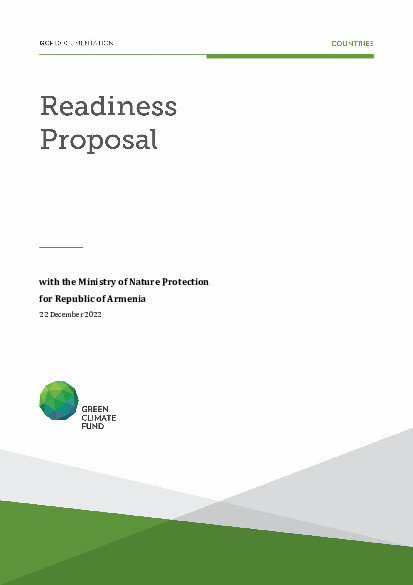Advancing programming and partnership framework with GCF and matching with country’s long-term low- carbon development strategies

Advancing programming and partnership framework with GCF and matching with country’s long-term low- carbon development strategies
Armenia developed the draft “GCF – Armenia Country Cooperation Programme” (CP), which is a multi-year strategic document outlining key pillars of Armenia’s engagement with the Fund during the first replenishment cycle (ending in 2023). It defines long-term priority sectors for funding solicitation that are concordant with the NDA’s vision for engagement areas in mitigation and adaptation domain, identifies portfolio of the projects that are anchored around current national development policies/climate strategies and preparedness of potential entities that are identified through in-country coordination process, describes in-country coordination mechanisms for stakeholder engagement, as well as communicates monitoring and evaluation framework of the Programme implementation.
However, the draft has not been approved by the Climate Investment Committee of the GCF during initial submission in 2021 and its finalization requires additional readiness and preparatory support to reengineer the Country Programme. Though the draft covering the first replenishment round provides a good baseline for designing 2.0 version of the document, it lacks to take into the country’s current climate policy framework which is formulated in the form of the updated NDC (approved by the Government on the 22nd of April 2021), Framework National Strategy on Adaptation to Climate Change Impacts for 2021-2030 (adopted by the Government on the 13th of May 2021 and Long-term Low Emissions and Development Strategies (to be endorsed by the government by Q4 2022). Building uponthe new climate strategic documents and frameworks (visualized through paragraphs below), development of the new version of the Country Programme will enable to conduct stakeholder-driven nationally wide consultations that will architect the partnership framework with the GCF around targeted needs and constraints of key beneficiaries and around the restructured project pipeline in line with national climate change priorities. Furthermore, the implementation of the reengineered Country Programme to be endorsed by the Climate Investment Committee will most importantly support the government to meet its commitments under the Paris Agreement through addressing the capacity constraints (via Readiness and Preparatory Support Programmes) and adapting to and mitigating climate change impacts (via full-size projects). The timeline of the country needs identified via readiness needs assessment and project pipeline will be synchronized for the next replenishment round (2024-2027) by addressing the key following constraints (e.g. challenges, gaps and barriers).